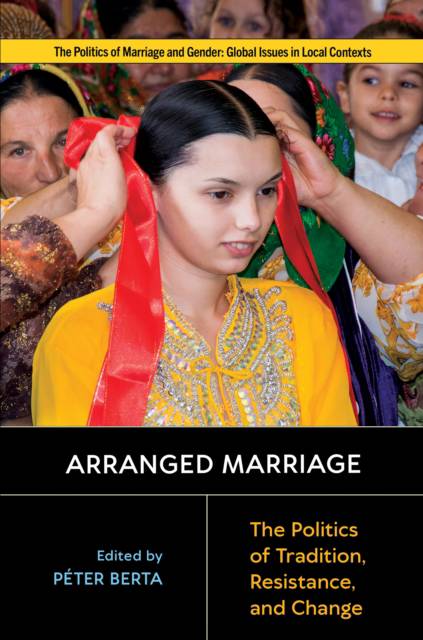
- Afhalen na 1 uur in een winkel met voorraad
- Gratis thuislevering in België vanaf € 30
- Ruim aanbod met 7 miljoen producten
- Afhalen na 1 uur in een winkel met voorraad
- Gratis thuislevering in België vanaf € 30
- Ruim aanbod met 7 miljoen producten
Zoeken
Arranged Marriage
The Politics of Tradition, Resistance, and Change
€ 65,45
+ 130 punten
Omschrijving
Arranged Marriage: The Politics of Tradition, Resistance, and Change shows how arranged marriage practices have been undergoing transformation as a result of global and other processes such as the revolution of digital technology, democratization of transnational mobility, or shifting significance of patriarchal power structures. The ethnographically informed chapters not only highlight how the gendered and intergenerational politics of agency, autonomy, choice, consent, and intimacy work in the contexts of partner choice and management of marriage, but also point out that arranged marriages are increasingly varied and they can be reshaped, reinvented, and reinterpreted flexibly in response to individual, family, religious, class, ethnic, and other desires, needs, and constraints. The authors convincingly demonstrate that a nuanced investigation of the reasons, complex dynamics, and consequences of arranged marriages offers a refreshing analytical lens that can significantly contribute to a deeper understanding of other phenomena such as globalization, modernization, and international migration as well as patriarchal value regimes, intergenerational power imbalances, and gendered subordination and vulnerability of women.
Specificaties
Betrokkenen
- Uitgeverij:
Inhoud
- Aantal bladzijden:
- 254
- Taal:
- Engels
- Reeks:
Eigenschappen
- Productcode (EAN):
- 9781978822825
- Verschijningsdatum:
- 17/03/2023
- Uitvoering:
- Paperback
- Formaat:
- Trade paperback (VS)
- Afmetingen:
- 154 mm x 234 mm
- Gewicht:
- 385 g

Alleen bij Standaard Boekhandel
+ 130 punten op je klantenkaart van Standaard Boekhandel
Beoordelingen
We publiceren alleen reviews die voldoen aan de voorwaarden voor reviews. Bekijk onze voorwaarden voor reviews.










